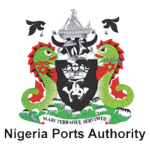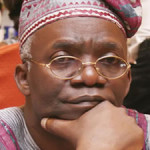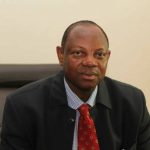EIB Invested Over €10b in Africa Last Year – Nakoulima –
African News, Business News, Latest Headlines Tuesday, May 10th, 2022
(AFRICAN EXAMINER) – The Investment Officer in charge of Global Partners of the European Investment Bank (EIB), Moussa Nakoulima said the Bank successfully invested over €10 billion in Africa in the 2021 fiscal year.
Nakoulima disclosed this while speaking in Abidjan at the capacity-building workshop on addressing land degradation and ecosystem restoration.
The EIB which is the lending arm of the European Union (EU), is currently the biggest multilateral financial institution in the world and one of the largest providers of climate finance.
The links between the EU and Africa are deep and broad. The Bank is a key part of the EU toolbox that for decades has helped make the partnership between these two continents stronger.
“We aim to maximise our potential as the EU bank, so that we can join our African partners in addressing today’s critical challenges together and embrace our opportunities”, the Bank said in an article published on its website.
The workshop was attended by West African representatives from the ministries of planning and finance, environment, and other stakeholders was held as a precursor to the ongoing UN Convention to Combat Desertification conference.
The two-day sessions focused on financing opportunities that have the potential to deliver transformative projects and programmes to boost the Great Green Wall initiative in West Africa.
The African Development Bank’s Africa Climate Change Fund contributed to the workshop, developed by the UN Convention to Combat Desertification, in collaboration with several technical and financing partners.
Meanwhile, the African Development Bank (AfDB), as an implementing agency and accredited entity to the Global Environment Facility, Green Climate Fund, and the Climate Investment Funds, is co-financing projects that contribute to addressing land degradation in Africa.
The Manager for Agriculture Research, Production, and Sustainability at the AfDB, Laouali Garba, said the Bank supports African countries in finding solutions for the sustainable management of natural resources to enhance the resilience of populations to the adverse effects of climate change and variability.
“Since the launch of the Bank’s Feed Africa strategy in 2015, more than 74 million people have benefited from access to improved agricultural and sustainable land management technologies. The Technologies for African Agricultural Transformation (TAAT) program has provided 11 million farmers in 29 African countries with proven agricultural technologies”, he said.
According to him, as the champion of resource mobilization to accelerate the implementation of the Great Green Wall Initiative Priority Investment Plan (2021-2030), the African Development Bank welcomes this partnership with the Global Mechanism for the UN Convention to Combat Desertification.
Similarly, the Programme Coordinator of Land Degradation Neutrality and Land Restoration at the Global Mechanism, Cathrine Mutambirwa, said: “We work with partners to improve the capacity to design transformative land-based interventions to build resilience and improve rural livelihoods. With the African Development Bank and other partners, we complement each other well to move the projects quickly”.
Land-based transformative projects and programs can target a wide range of funding sources, by combining public, private, and blended financial resources, including the Global Environment Facility, the Green Climate Fund, the Adaptation Fund, and other financing mechanisms from multilateral and bilateral banks, like the Land Degradation Neutrality Fund.
Senior Climate Finance Officer and Africa Climate Change Fund Coordinator, Rita Effah noted that the Africa Climate Change Fund supports regional member countries to directly access climate finance by preparing bankable projects to access climate funds and also by supporting the implementation of small-scale adaptation projects, including land restoration, to enhance communities’ resilience.
In his remarks at the workshop, an Environmental Specialist at the World Bank, Yasmina Oodally explained how the World Bank supports the Great Green Wall, with future land restoration projects targeting policy and institutional reforms designed to empower local communities, especially women, adding that the World Bank committed $5.6 billion through ongoing and new projects in the Great Green Wall countries.
Programme Management Officer of the Great Green Wall initiative, Sarah Toumi said the Pan-African Initiative of the Great Green Wall is a nature-based solution to the complex challenges facing humanity and a compelling symbol of what is possible if we work together to protect and restore our planet.
“It is one piece in the puzzle in providing genuine alternatives for people increasingly working together to stop the drivers of land degradation and increase rehabilitation of degraded lands”, she stressed.
Notably, halting and reversing land degradation can transform the land from being a source of greenhouse gas emissions to a sink by increasing carbon stocks in soils and vegetation
Moreover, land degradation neutrality aims to balance anticipated losses in land-based natural capital and associated ecosystem functions and services with measures that avoid and reduce land degradation and produce alternative gains through land restoration and sustainable land management approaches.
Related Posts
Short URL: https://www.africanexaminer.com/?p=76688






















